‘We live in an information society, not a society of culture’
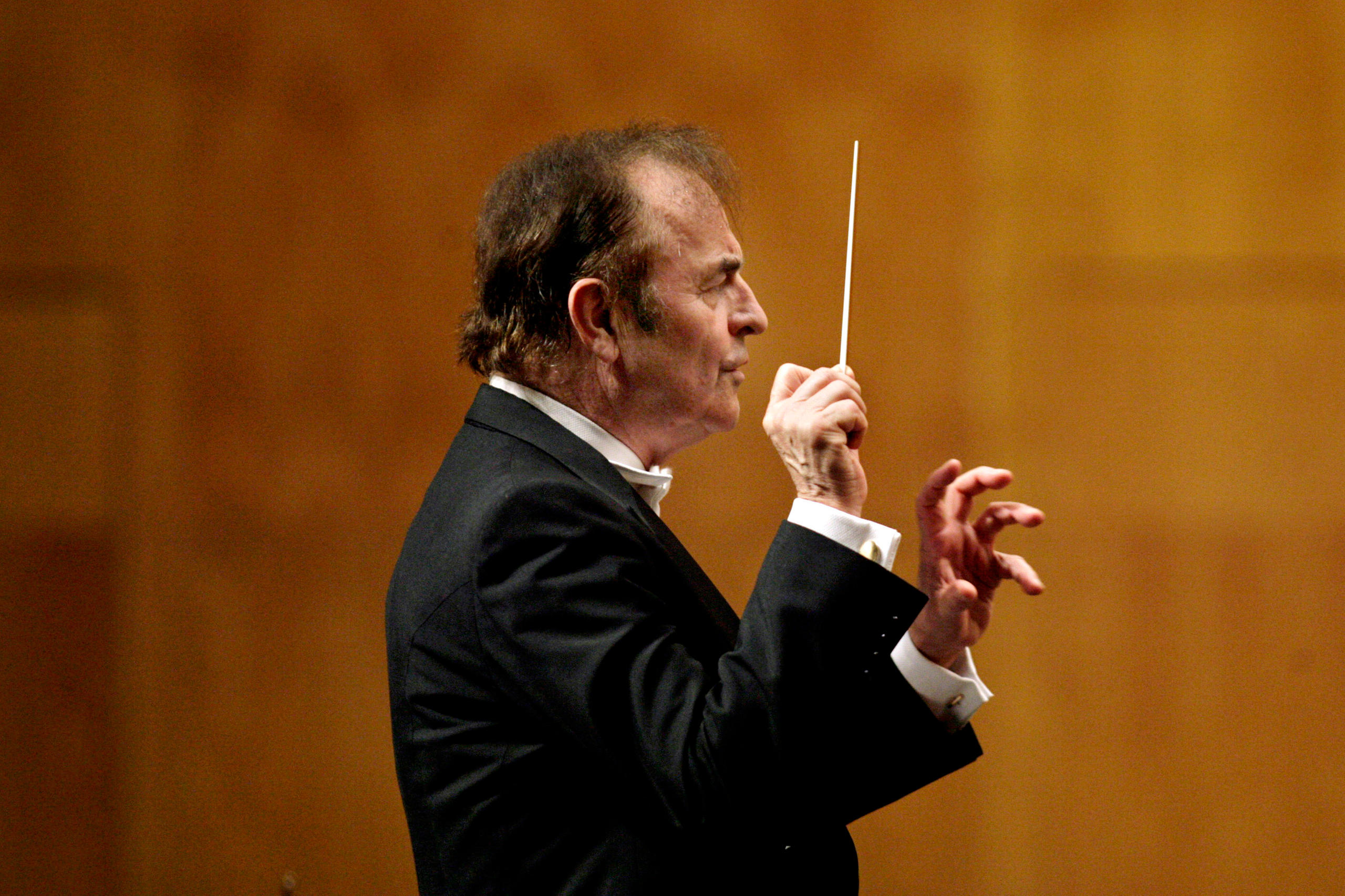
Swiss conductor Charles Dutoit rarely gives interviews. But on the occasion of his 80th birthday, the Grammy-winner spoke to swissinfo.ch about a 55-year career that started with conducting at age 14, and what he hopes will be his legacy.
swissinfo.ch: How did you first become interested in music?
C.D.: When I was small, I wanted to join my school’s marching band. I liked the uniforms and military marches, which were common in wartime. As children, we wore a little military-type cap with the coats of arms of the canton of Vaud and a little braid that reminded me of photos of my father in the army. But my family didn’t want me to play the trombone in the house, as it was too noisy. My father then found out that I could take violin classes that would be subsidised by the state. That’s how my musical training began.
swissinfo.ch: When did you decide to become a conductor?
C.D.: I once saw a film where a boy conducted an orchestra. He must have been my age at the time, maybe 12 or 13. That made me curious about conducting, so a friend and I became ushers at concerts held at the cathedral in Lausanne. Later, I joined a small chamber orchestra in Renens. One day the conductor was late and my colleagues asked me if I would like to conduct, as I was the best in the group. I helped them during rehearsals, and in a show of gratitude the conductor allowed me to conduct Mozart’s Eine Kleine Nachtmusik during the concert. I was 14, and I could say that that was my début.
swissinfo.ch: After Lausanne, you went to Geneva, right?
C.D.: That’s right. There, I began to play the viola, as there was a great demand for violists and it allowed me to earn a bit of money to support myself. In Geneva I began studying conducting more seriously, and then met Ernest Ansermet, the legendary conductor of the Orchestre de la Suisse Romande, who became my mentor, although he was never my teacher. When I was 21, I won my first award as a conductor, which wasn’t too bad when you consider that when I was 12, I barely had an understanding of music.
swissinfo.ch: Is life for a young aspiring conductor more difficult now than it was at your time?
C.D.: You can’t compare the two periods. We used to have an enormous respect for tradition. We didn’t have much access to information. We had to do research, listen to the radio, find rare records that were very expensive. Having a record library was imperative for students. Furtwängler and Karajan in Berlin, or Toscanini in the United States, for instance, were genuine myths to us. We didn’t dare take a stab at their repertoires.
swissinfo.ch: What is happening today?
C.D.: Today there are no myths and young people can access an excessive amount of information. Because of YouTube and DVDs, they can study conducting alone in front of a mirror. I believe that we learned with more effort, slowly, and that our training had roots. Today everything is done quickly, and because of this, sometimes there are shortcomings. We now live in an information society instead of living in a society of culture. As a result, people are well informed but uncultivated.
swissinfo.ch: I have to ask about your long relationship with world renowned pianist Martha Argerich.
C.D. I met Martha in 1958, when she was 17. We continue to be great friends. We married in 1969. It was a funny story. Both of us were already married at the time, but Argentinian law did not recognise divorce. We therefore decided to go to Paraguay. In the middle of the flight there, we hit a massive storm and thought we would not live to tell the tale. The plane ended up returning to Buenos Aires and we couldn’t marry. But later our friends organised a wedding for us in Montevideo. In October 1970, our daughter Annie was born.
We divorced in 1974, although we got on really well. But our lifestyles were totally incompatible. She would go to bed early in the morning after chatting with friends until 5am, and I would have to go to work at 9am. There came a point when the situation became unsustainable. On the day the judge ruled on the divorce, we went to the cinema and had dinner together to celebrate. It was a lovely relationship, and it continues to be.
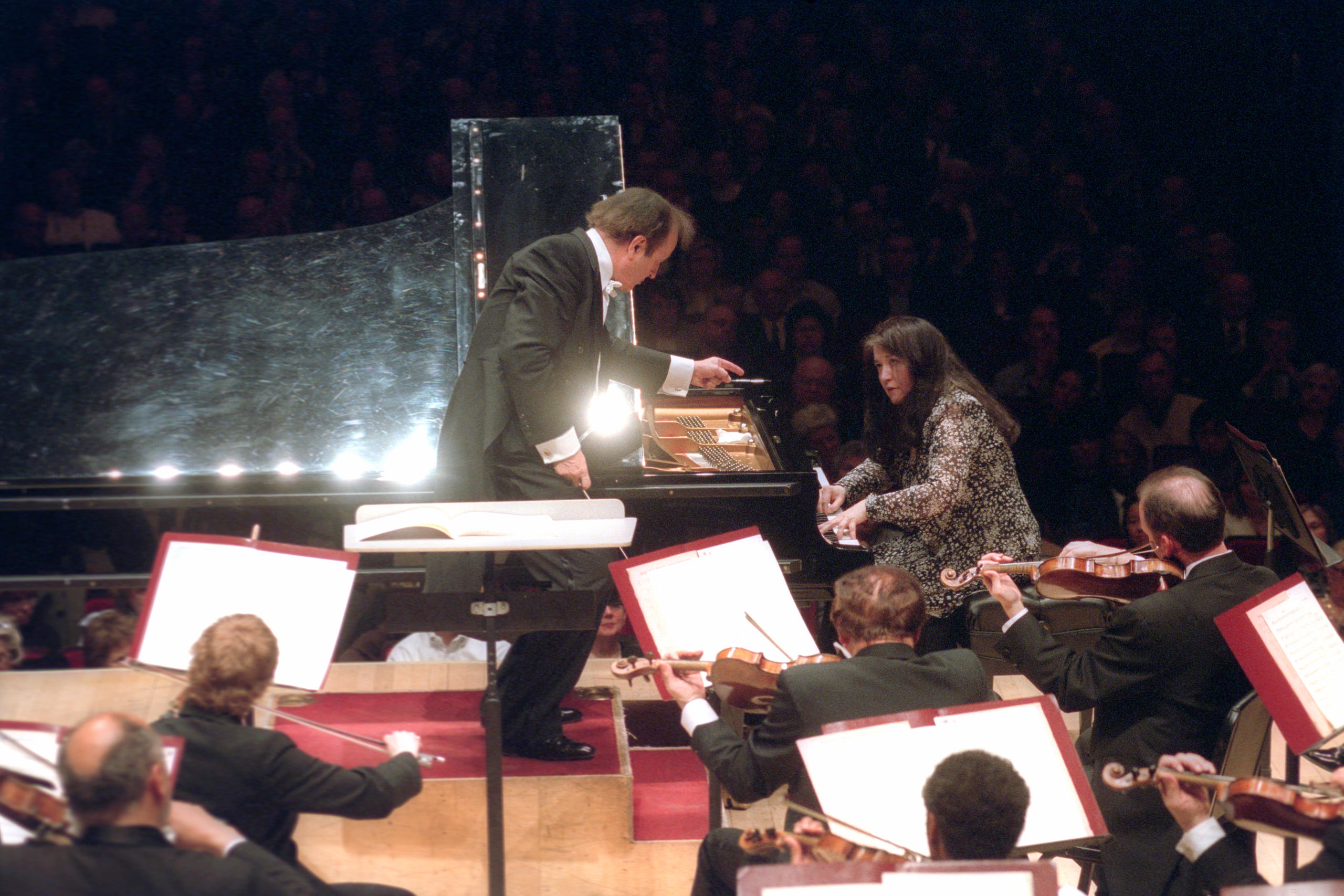
swissinfo.ch: In recent years there has been a boom in women conductors.
C.D .: There is no reason why women cannot lead orchestras. Their talent is the same as men’s. Often women are even better. Until recently there wasn’t a single woman in the Vienna Philharmonic Orchestra. Martha never wanted to perform with this orchestra because it was “sexist”.
For many years, the conductors all came from Central Europe or were Eastern European Jews. Then came Americans, Asians and Latin Americans. Today it’s the turn of women.
swissinfo.ch: You continue to conduct the Verbier Festival Orchestra in Switzerland.
C.D.: Yes, I do that for one week a year. But next year will be my last season. I am now respectably old, and it exhausts me working every day with an orchestra of young people. I directed them for nine years, and I feel that is enough. Verbier is lucky to rely on the talent of its director, Martin Engstroem, who knows how to present a globally recognised festival.
swissinfo.ch: Which young conductors are you interested in?
C.D.: There is one who I admire and have known since he was a baby. Philippe Jordan, the son of my friend and orchestra director, Armin Jordan. Philippe has extraordinary talent. Right now he is working in Paris and Vienna. I would very much like to see him become the new conductor of the Tonhalle Orchestra in Zurich, as the position will be soon vacant. It would be wonderful to see a brilliant Swiss in front of an orchestra that is so important for our country.
swissinfo.ch: Have you thought about how you may wish to be remembered and the artistic heritage that you would leave behind?
C.D.: It doesn’t matter what happens when I die. I don’t believe in artistic heritage, but rather in enjoying life. I am not interested in anyone dedicating a street in my name or erecting a statue in a square. What interests me is transmitting experience. When I see all the new emerging conductors, I tell myself that 55 years of professional experience cannot be invented. They either have it or they don’t. I believe that sharing my experience with the new generation is the best legacy I could leave behind.
Charles Dutoit
Born in Lausanne on 7 October 1936, he is considered a specialist in French symphonic music – including Ravel and Debussy – and 20th century composers.
Among the awards he has collected are two Grammys, several Juno Awards, the Grand Prix du Président de la République, the Prix mondial du disque de Montreux, the Amsterdam Edison Award, the Japan Record Academy Award and the German Music Critics’ Award. He is also one of only a few non-Canadians to be a Grand Officer of the Ordre national du Québec.
From 1967 to 1977 he was director of the Symphonic Orchestra of Bern. He also conducted the Tonhalle Orchestra in Zurich.
Between 1977 and 2002, he was the honorary music director of the Montreal Symphony Orchestra in Canada. He regularly conducted orchestras in Mexico, Japan, France, Argentina and Sweden.
Dutoit currently conducts London’s Royal Philarmonic Orchestra and the Verbier Festival Orchestra in Switzerland, where he trains new generations of orchestra musicians.
Dutoit was married four times and has two children: Ivan, from his first wedding, and Annie, born following his marriage to Martha Argerich. He is currently married to Canadian concert violinist Chantal Juillet.
Translated from Spanish by Paula Dupraz-Dobias

In compliance with the JTI standards
More: SWI swissinfo.ch certified by the Journalism Trust Initiative
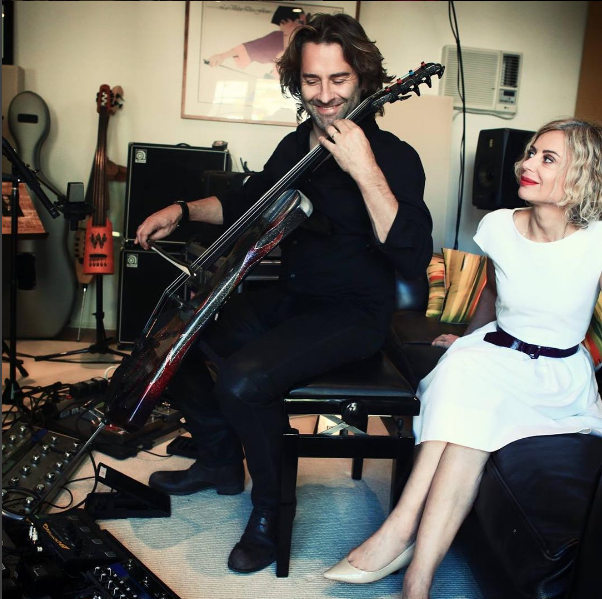
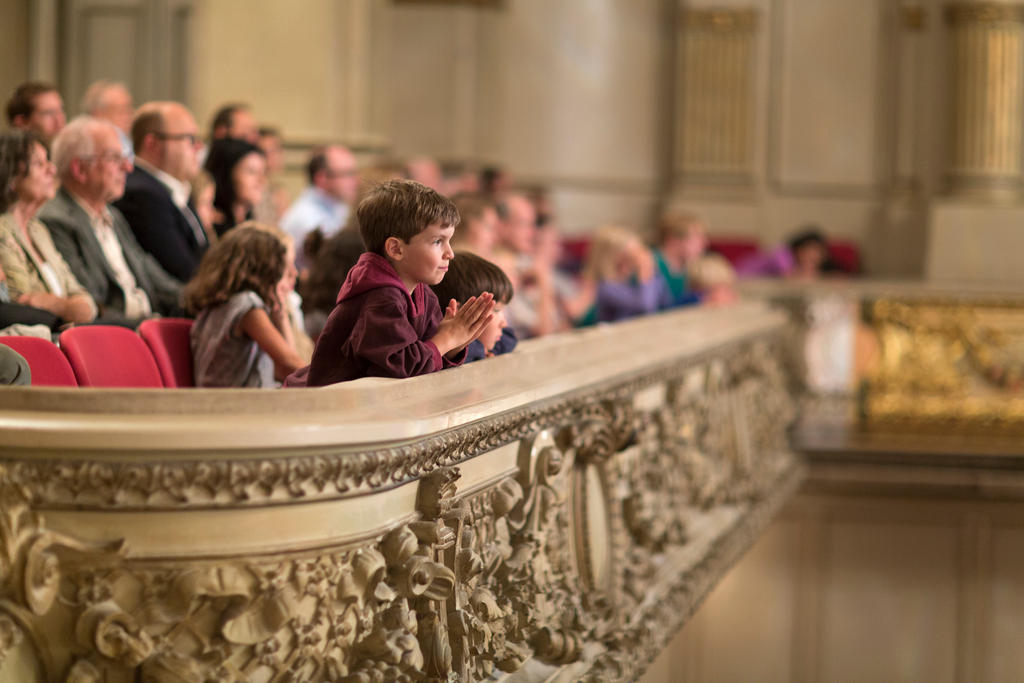
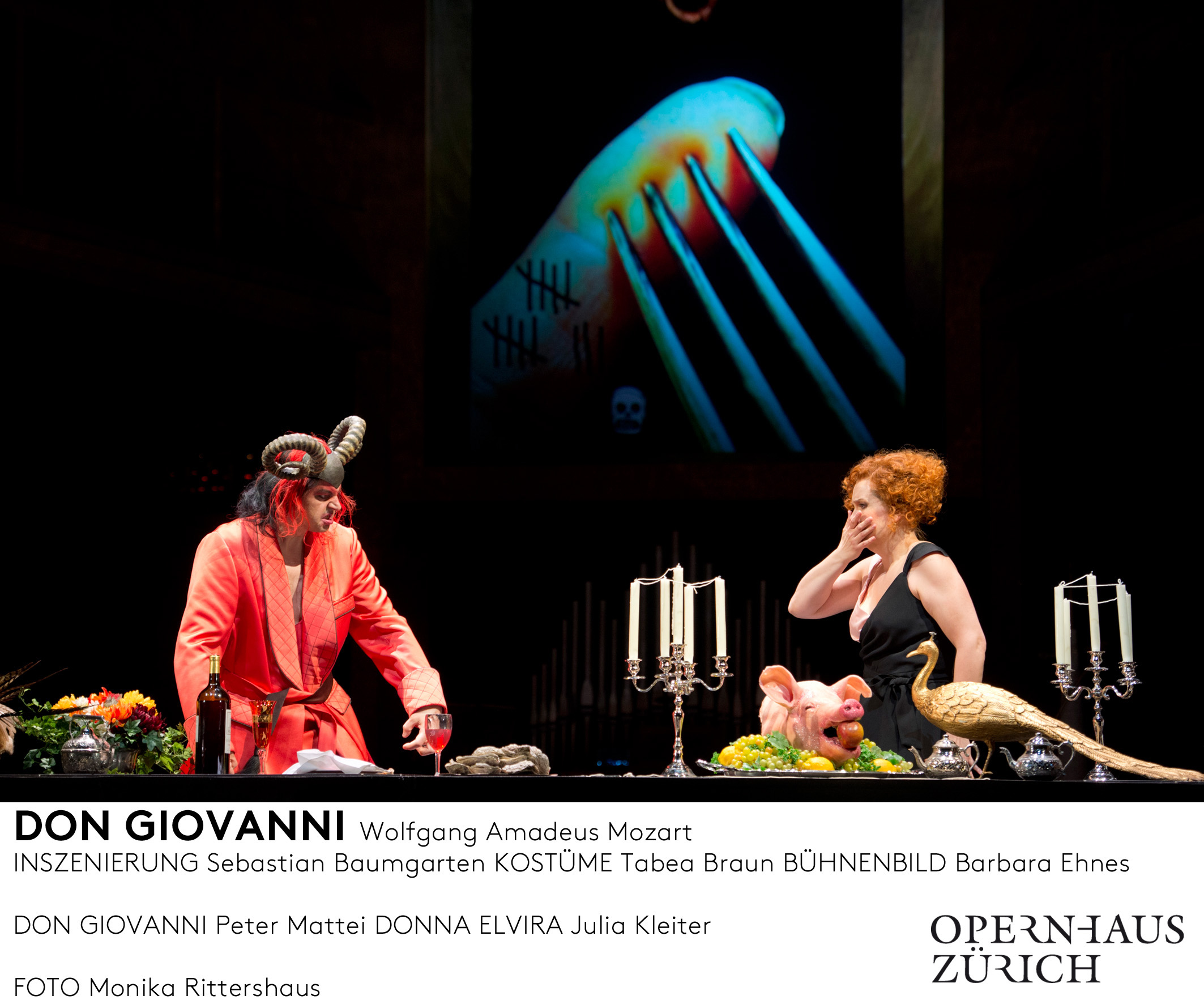
You can find an overview of ongoing debates with our journalists here. Please join us!
If you want to start a conversation about a topic raised in this article or want to report factual errors, email us at english@swissinfo.ch.